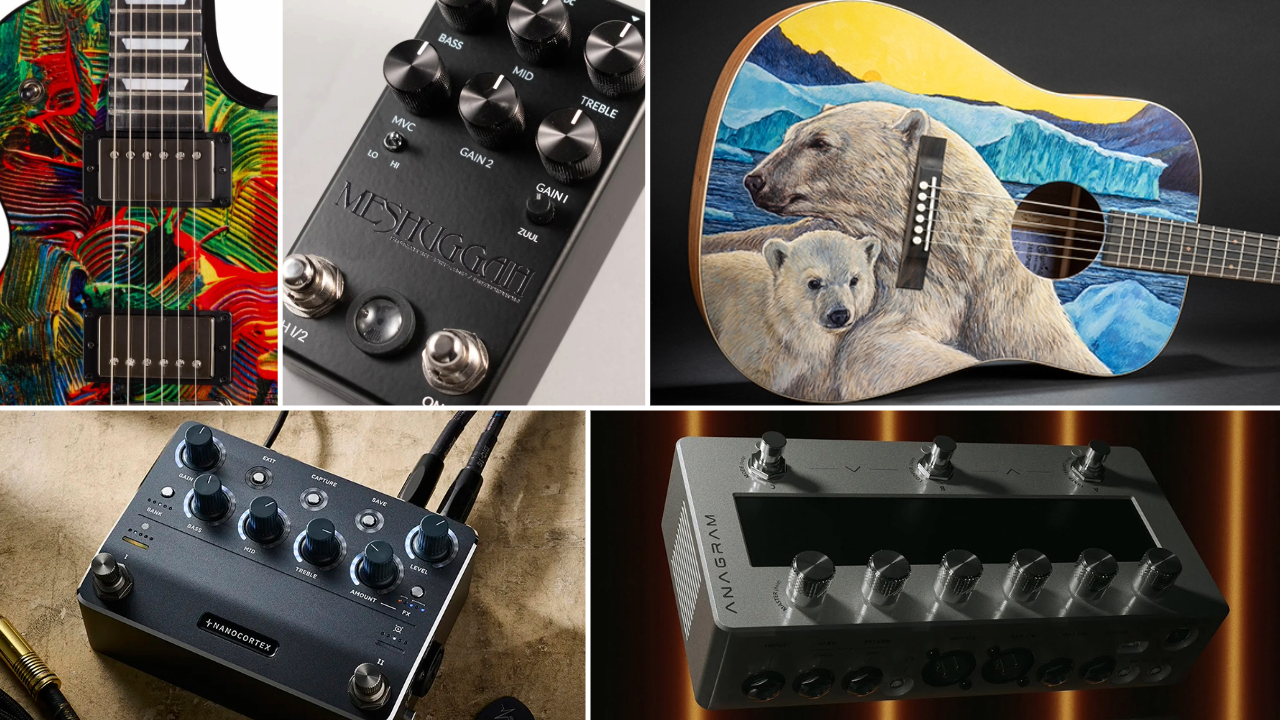“I took over where Billy Gibbons left off and did my half of the solo, and it was a very rare thing. My wife loves it. She doesn’t love anything I do...” Brian May, Billy Gibbons and Steve Cropper on how the three guitar icons learned to play together
For the latest record from Steve Cropper & The Midnight Hour, the Stax legend enlists two equally iconic players. Here three kings of the six-string tell us what went down in Friendlytown

With respected producer Jon Tiven at the helm, the session icon is back again with Friendlytown, the follow-up to Fire It Up, the critically acclaimed debut album from his quintet Steve Cropper & The Midnight Hour.
But this time, he’s called in some larger-than-life pals, Billy Gibbons and Brian May, to spice things up. In celebration, Guitarist checked in with the trio of guitar masters to break down their relationship in and out of the studio.
Steve, tell us about the origins of your new album, Friendlytown. What kicked this off?
Steve Cropper: “Well, I think Mascot got us going, especially after getting a Grammy nomination last time [with Fire It Up]. Once the budget came in for this one, I started writing right away.”
Billy, how did you become involved?
Billy Gibbons: “Having been acquainted with Steve from way back in the Memphis days, fast forward to the present by a chance exchange on the street with record producer Jon Tiven, whispering the name ‘Steve Cropper’. Needless to say, we got fired up!”
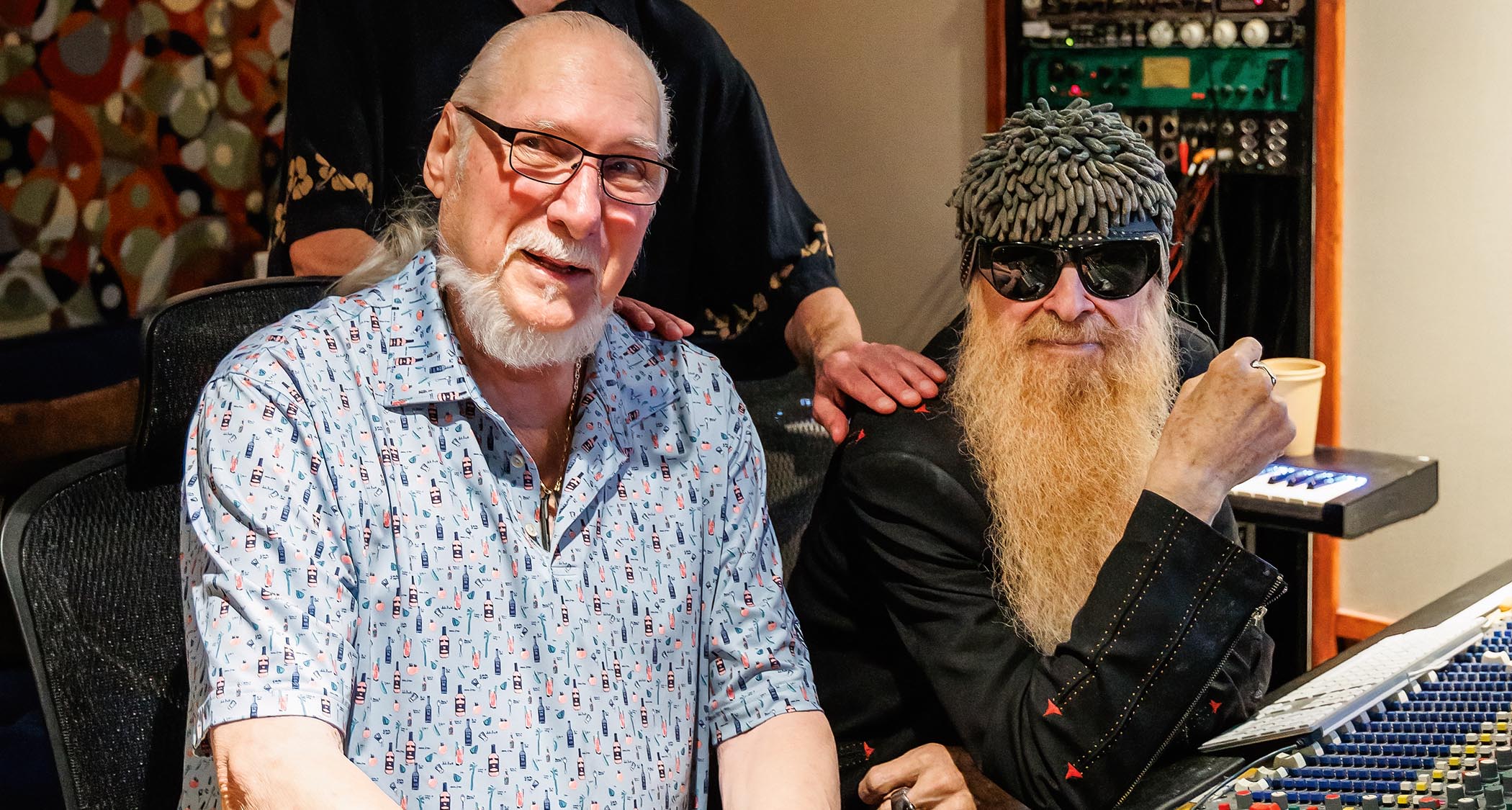
And where did you come in, Brian?
Get The Pick Newsletter
All the latest guitar news, interviews, lessons, reviews, deals and more, direct to your inbox!
Brian May: “It was a roundabout way through Jon Tiven, like Billy said, the producer of the record. Jon is a very old friend of mine and we’d kept in touch over the years. He’s a very interesting spirit and great at getting spontaneity.”
When seeing what is possible with the straightforwardness of a bare‑naked Fender slab-body straight into a Fender Tweed amp, it is better to stand back
Billy Gibbons
This appears to be the first time the three of you have worked together, a phrase we use loosely, seeing as the way records are made these days doesn’t always involve an in-person experience.
Brian: “I met Steve properly at a concert we did as a tribute to Elvis’s guitarist James Burton. We did this wonderful tribute and I had the time of my life because James was such a hero of mine. But my other great hero, Steve Cropper, was there. We had an amazing time; I’ll never forget it.”
Brian, given your styles are so different, people probably don’t realise the impact of Steve’s playing on you.
Brian: “Yes! I’m a little nervous when I meet my heroes; I’m not really relaxed. I’m not quite sure what I said to him, but it was great. I supposed the actual playing together was a deal. When you hear the guy on the other side of the stage and you hear your guitars together, it’s an amazing feeling and such a privilege for someone like me.”
Billy, when did you first meet Steve?
Billy: “We both were residing in Memphis during the heyday making records that jolted a range of artists into international prominence. And, like so many, I was magnetised with what Steve was doing with his guitar and production sounds.
“And now, ‘fast-backward’ to a fateful encounter with Steve at the infamous Molly’s Mexican Casita down Madison Avenue between John Fry’s Ardent Records and Steve’s Trans-Maximus Studios. From that point forward, it’s remained our mutual admiration of the mystique of guitars, guitars and more guitars.”
Was he a big influence on you as he was with Brian?
Billy: “Yeah, man. Steve is legendarily low-keyed, with an upfront passion for tastefulness and tone. When seeing what is possible with the straightforwardness of a bare‑naked Fender slab-body straight into a Fender Tweed amp, it is better to stand back for the attack.”
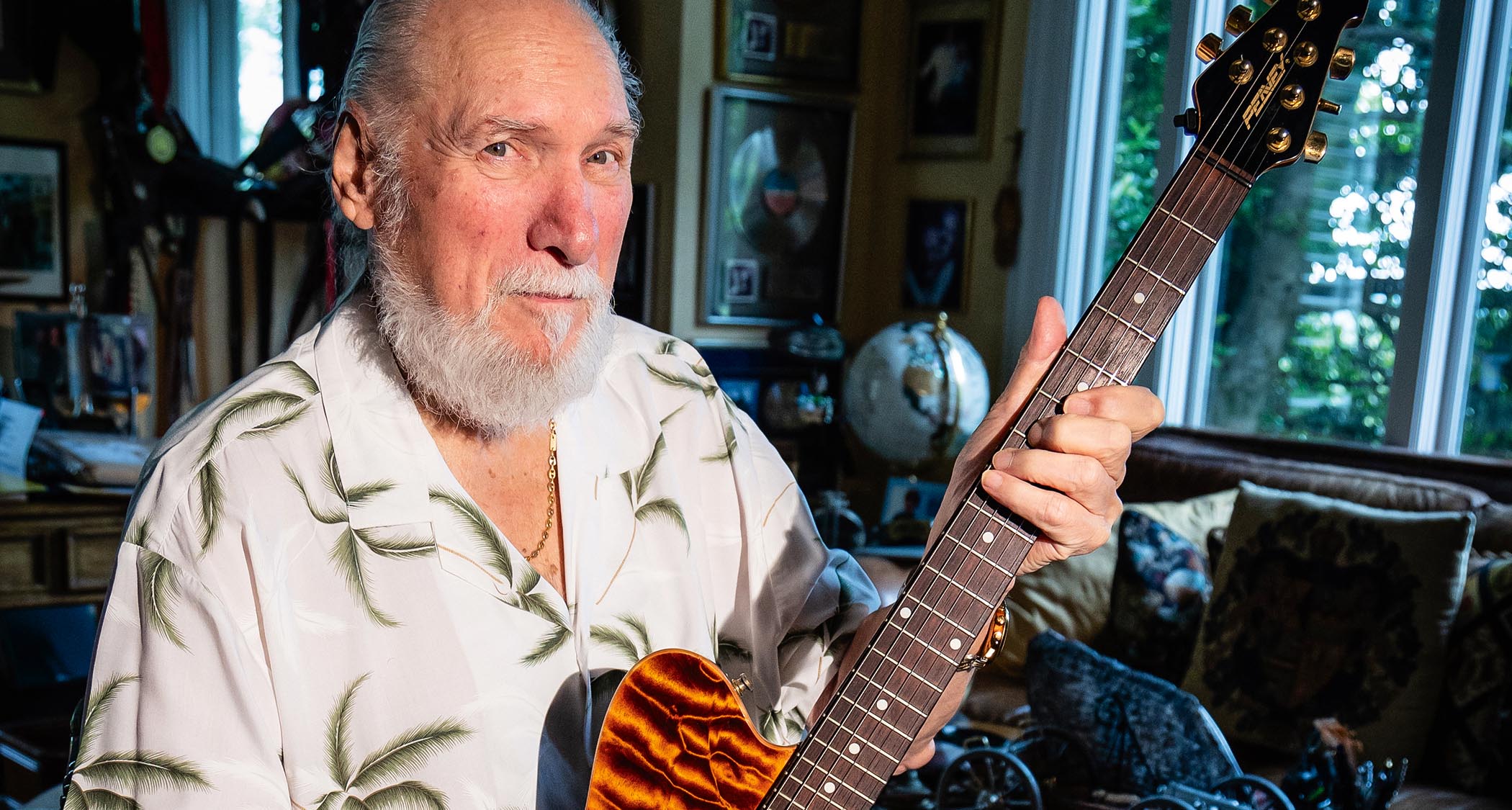
What does your songwriting process look like now, and how has that changed from your early days recording for Stax?
Steve: “Songwriting has always been easy for me, like water off a duck’s back. But I can’t write by myself, I’m too critical. I love having someone there to say, ‘That was good, do that again.’ I usually put down titles first, then see what’s good for that day.”
Has that changed much since your early days with Stax in the 60s or doing sessions in the 70s?
Steve: “No, it’s pretty much the same. I’ve always loved co-writing. There are only one or two songs out there with just my name on them, like [Booker T & The MG’s’] Soul Dressing with The Mar-Keys.”
What was the first song you wrote for new record, Friendlytown?
Steve: “The first time Billy Gibbons came in, we worked on the song Friendlytown. I love one or two-word titles. ‘Friendlytown’ sounded good to me, so we decided to name the album that.”
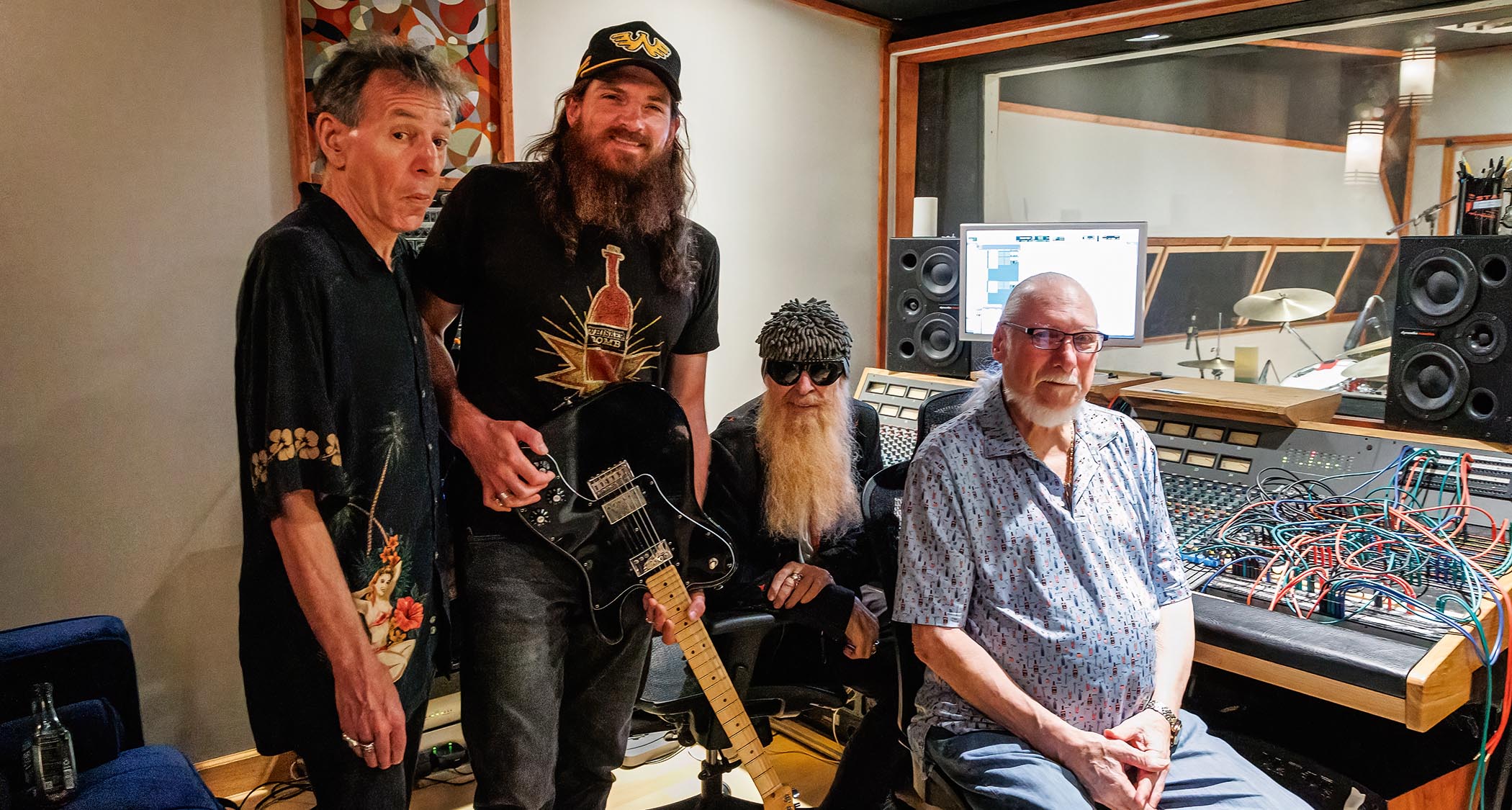
Billy, once you got rolling, what was the process like working with Steve on riffs and songwriting?
Billy: “One word when working beside Steve is ‘acceleration’. The adrenaline works overtime, which ironically is balanced when creating laid-back guitar figures. The title track, current to this behind-the-scenes view with Steve’s disc, Friendlytown, slips a bluesy six-string smoothness throughout, which paves the way for absorbing the record’s feel.
“There exists a mutual awareness of the challenge of maintaining impact through simplicity. It might be fair to say Steve wrote the book on economy while staying focused on ferociousness.”
As far as tones, what gear did you use when recording Friendlytown, and did you consider what Steve used in order to create contrasting textures?
Billy: “Knowing Steve’s prowess playing stridently Cropper-like on just about anything, we waited for Crop’s arrival in order to spy out which axe of his many would be favoured for session ignition. Lo and behold, Steve, in fine fashion, strolled in, having a look around and, of course, grabbed the studio’s classic, 1960 Fender Esquire!
“Pearly Gates [Gibbons’ 1959 Les Paul Standard] was immediately put into service as a complementary tonal companion. Steve held back his twin-pickup Telecaster for extra sass. Fender and Magnatone amplification made the collection of sounds blend together handily.”
Brian, let’s talk about your track, Too Much Stress. That song originates from an email to Jon Tiven, where you initially declined to participate, right?
Brian: “So Jon emails me one day, saying, ‘Look, I’m producing this record for Steve Cropper. Do you want to play on it?’ I said, ‘Oh, I’d really love to, but I’m in the middle of all this stuff at the moment, including being on tour. I’d really love to, but right now there’s too much stress in my life. My apologies.’ I said, ‘Maybe I can do it another time, but at the moment, there’s too much stress.’
“Two days later, an email comes back from Jon, saying, ‘Okay, I hear your email. I’ve written a song about your email. It’s called Too Much Stress. Do you want to play on this for Steve?’ I had to say yes! He sent me the track and it was just full of life and fun. It made me smile.”
Of note, you and Billy share the solo on Too Much Stress. Can you tell us a bit about how that came about?
Billy, of course, is the coolest guitar player on the planet. He plays so little, but it counts so much
Steve Cropper
Brian: “That was an interesting situation because Billy had already played half a solo. Jon said to me, ‘Can you play the other half?’ I said, ‘Jon, look, can’t you give him a whole solo and me a whole solo?’ Jon said, ‘No, this is the way it’s going to be.’ I said, ‘Oh God, all right.’ But I listened and thought, ‘Actually, this probably does make sense.’
“Billy, of course, is the coolest guitar player on the planet. He plays so little, but it counts so much. It’s just very, very cool. He’s not showing off or trying to prove a point. He’s just playing from his heart – so I did the same thing.
“I took over where he left off and did my half of the solo, and it was a very rare thing. My wife loves it. She doesn’t love anything I do, generally, but she loves this track. She said, ‘This is what you should be doing. Going out on tour with these guys and being on this record.’ [Laughs]”

Did you stick with the Red Special in your beloved Vox AC30?
Brian: “Nothing different from that – that setup is really an extension of me. The Vox and that guitar, along with a copy of the [Dallas] Rangemaster Treble Booster that’s slightly souped up. That’s basically what it is. It’s the sound of Rory Gallagher, though my sound ends up different.”
Billy, what was your perspective on sharing space within Too Much Stress with Brian?
Billy: “It was quite obvious we both were enamoured with the opportunity to keep the invitation front and centre. Ain’t no doubt the joint enthusiasm accompanied the performances to a satisfying sense of ‘Steve-approved’ style.”
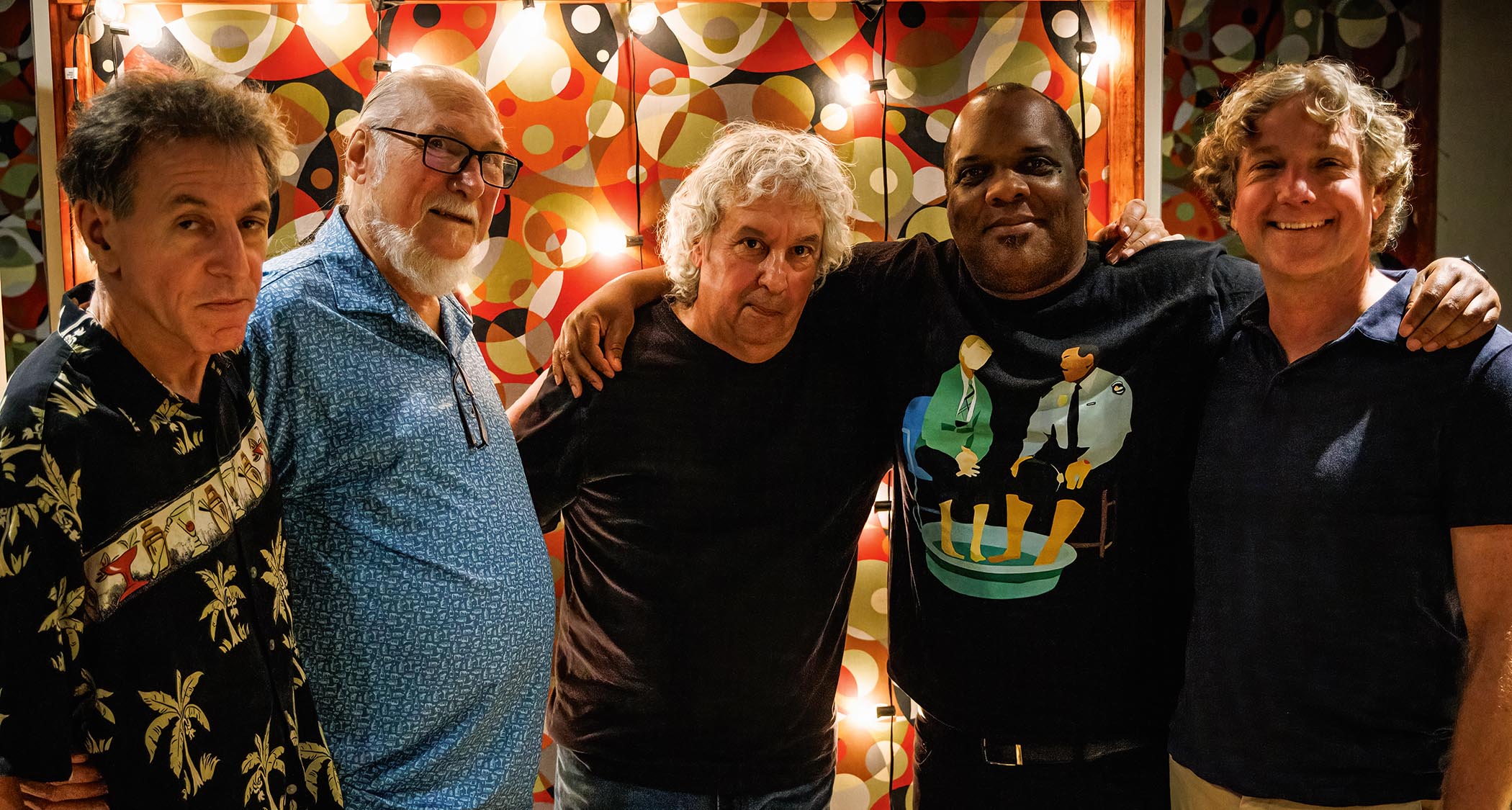
Steve – Billy and Brian have dug into their gear a bit, but what’s the secret to harnessing the coveted Cropper tone?
Steve: “I don’t switch much. The first guitar I played for 14 years was just a regular run-off-the-shelf Telecaster model. The second one I’ve been playing for 10 years and I might retire it soon. I’ve had two custom guitars made up, but they’ve got to feel right, you know?
“I’ve been using a Victoria amp made in Chicago. It’s a handmade [Fender] Twin [clone], and I’ve been using it for years. People like Bonnie Raitt and Buddy Guy have played it, too. I just stick with what works for me. So, there’s no magic. If it’s comfortable, that’s what matters to me.”
And when you take a solo, how do you approach things?
Steve: “The guitars stayed the same for me. I prefer not to hear something before I work on it; I like reacting to it fresh. It’s not always the first take, but I keep at it until it’s perfect.
“My solos are more lyrical, kind of vocal-like. I always try to play the melody, like in (Sittin’ On) The Dock Of The Bay, where I tried to mimic the sound of seagulls. I stick to that formula – it’s worked so far.”
Friendlytown is unique – if only because it features three contemporaries who have impacted each other and shaped the sound of guitar over the past 50-plus years.
Billy: “We positioned a sizable studio corner to allow that elusive element of providing a sense of space for everybody to enjoy a slice within each song. Steve’s direction was invaluable, indicating moments within each arrangement where a slight sonic stab might be enough, still leaving room for everyone on the session. Brian May’s injection dug in right, keeping the three-lane avenue wide open, joining three parts together as one.”
Everyone is playing what feels right, and there’s passion in it. There’s an incredible sense of integrity that Steve helped to create
Brian May
Brian: “What we have in common is that we don’t shred for the sake of it. In my case, it’s because I can’t! [Laughs] But guitar playing, for all of us, is the voice; it’s how you feel. If your guitar can express that feeling, you’ve done your job. We have that in common. Nobody is showing off or zooming up and down the fretboard. Everyone is playing what feels right, and there’s passion in it. There’s an incredible sense of integrity that Steve helped to create.”
Steve: “[Jon] Tiven ran into Billy and told him about the record. Billy said, ‘Can I be on it?’ That meant a lot to me. But other than Billy being a superstar with ZZ Top and playing his butt off – our styles are pretty similar! [Laughs] And I have always been impressed with Brian’s vocal harmonies. I’m just glad we were able to mix everything and figure out where it all should fit [on the record]. Thank goodness! Beyond that, I wouldn’t break it down; listen for yourself!”
Which of these tracks best represents the connections you made on this record?
Steve: “Aside from Too Much Stress, I’d say There’s Always A Catch. It’s the most R&B track, it’s unlike anything I’ve played before. The track is funky and sticks with you.”
Steve’s guitar playing moves people, but it’s not just notes, there’s structure. Steve sees the whole picture – he co-wrote (Sittin’ On) The Dock Of The Bay, he didn’t just put some guitar on
Brian May
What does this experience mean to you all?
Billy: “Just another day in Groovesville. Kinda tops it off in soothing the soul. If you need further reassurance of the depths of Steve’s importance, just take it from that well-known shout-out in the hit with Sam & Dave’s Soul Man. ‘Play it, Steve!’ says it all.”
Brian: “With Steve, there’s a form of unbroken coolness. That’s the beauty of a collaboration like that. The perk of doing what I do is playing with fantastic people; I’m so lucky. Steve’s guitar playing moves people, but it’s not just notes, there’s structure. Steve sees the whole picture – he co-wrote (Sittin’ On) The Dock Of The Bay, he didn’t just put some guitar on. His playing is colossal and immortal. So yeah, he doesn’t feel like a contemporary… he feels like an icon to me.”
Steve: “I just hope to be remembered as a nice guy. That’s all I care about, so I don’t think about what’s next. I just focus on what I’m doing at the moment.”
- Friendlytown is out now via Mascot.
Andrew Daly is an iced-coffee-addicted, oddball Telecaster-playing, alfredo pasta-loving journalist from Long Island, NY, who, in addition to being a contributing writer for Guitar World, scribes for Bass Player, Guitar Player, Guitarist, and MusicRadar. Andrew has interviewed favorites like Ace Frehley, Johnny Marr, Vito Bratta, Bruce Kulick, Joe Perry, Brad Whitford, Tom Morello, Rich Robinson, and Paul Stanley, while his all-time favorite (rhythm player), Keith Richards, continues to elude him.
“I loved working with David Gilmour… but that was an uneasy collaboration”: Pete Townshend admits he’s not a natural collaborator – even with bandmates and fellow guitar heroes
“This guy kept calling saying, ‘I’ve never been in a band before, but I’m the best guitarist ever.’ When I heard him play it was like a fire from heaven”: The life and times of Killing Joke visionary Geordie Walker – the guitar hero’s guitar hero













![[from left] George Harrison with his Gretsch Country Gentleman, Norman Harris of Norman's Rare Guitars holds a gold-top Les Paul, John Fogerty with his legendary 1969 Rickenbacker](https://cdn.mos.cms.futurecdn.net/TuH3nuhn9etqjdn5sy4ntW.jpg)


